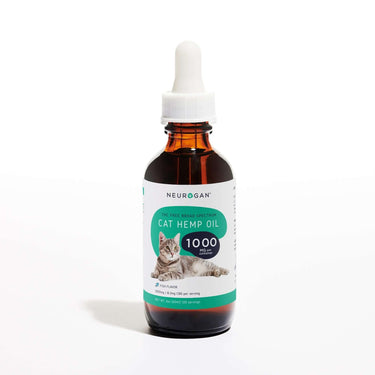1.67% CANNABINOIDS ∣ 60ML ∣ 120DOSES
In stock
CBD Tincture for Cats 1000MG (2oz) is made with a tasty fish flavor and THC Free Broad Spectrum hemp. Help your feline friend with our human-grade CBD oil for cats made to support a calm mood and healthy mobility.
Neurogan has the best CBD oil for cats price on the market. Compare our price per bottle and per MG and you won’t be disappointed:
- Neurogan: $0.03 per MG ✅
- Competitors: $0.08 per MG ❌
- Neurogan: $27 for 1000MG CBD per Bottle ✅
- Competitors: $52 for 650MG CBD per Bottle ❌
 No Artificial Testing
No Artificial Testing 100% Gluten Free
100% Gluten Free Cruelty Free
Cruelty Free GMO-Free
GMO-Free 3rd Party Lab Tested
3rd Party Lab Tested 30 Day Guarantee
30 Day Guarantee Farm-Bill Compliant
Farm-Bill Compliant No Artificial Testing
No Artificial Testing 100% Gluten Free
100% Gluten Free Cruelty Free
Cruelty Free GMO-Free
GMO-Free 3rd Party Lab Tested
3rd Party Lab Tested 30 Day Guarantee
30 Day Guarantee Farm-Bill Compliant
Farm-Bill Compliant No Artificial Testing
No Artificial Testing 100% Gluten Free
100% Gluten Free Cruelty Free
Cruelty Free GMO-Free
GMO-Free 3rd Party Lab Tested
3rd Party Lab Tested 30 Day Guarantee
30 Day Guarantee Farm-Bill Compliant
Farm-Bill Compliant
Neurogan
CBD Cat Oil

High Quality










